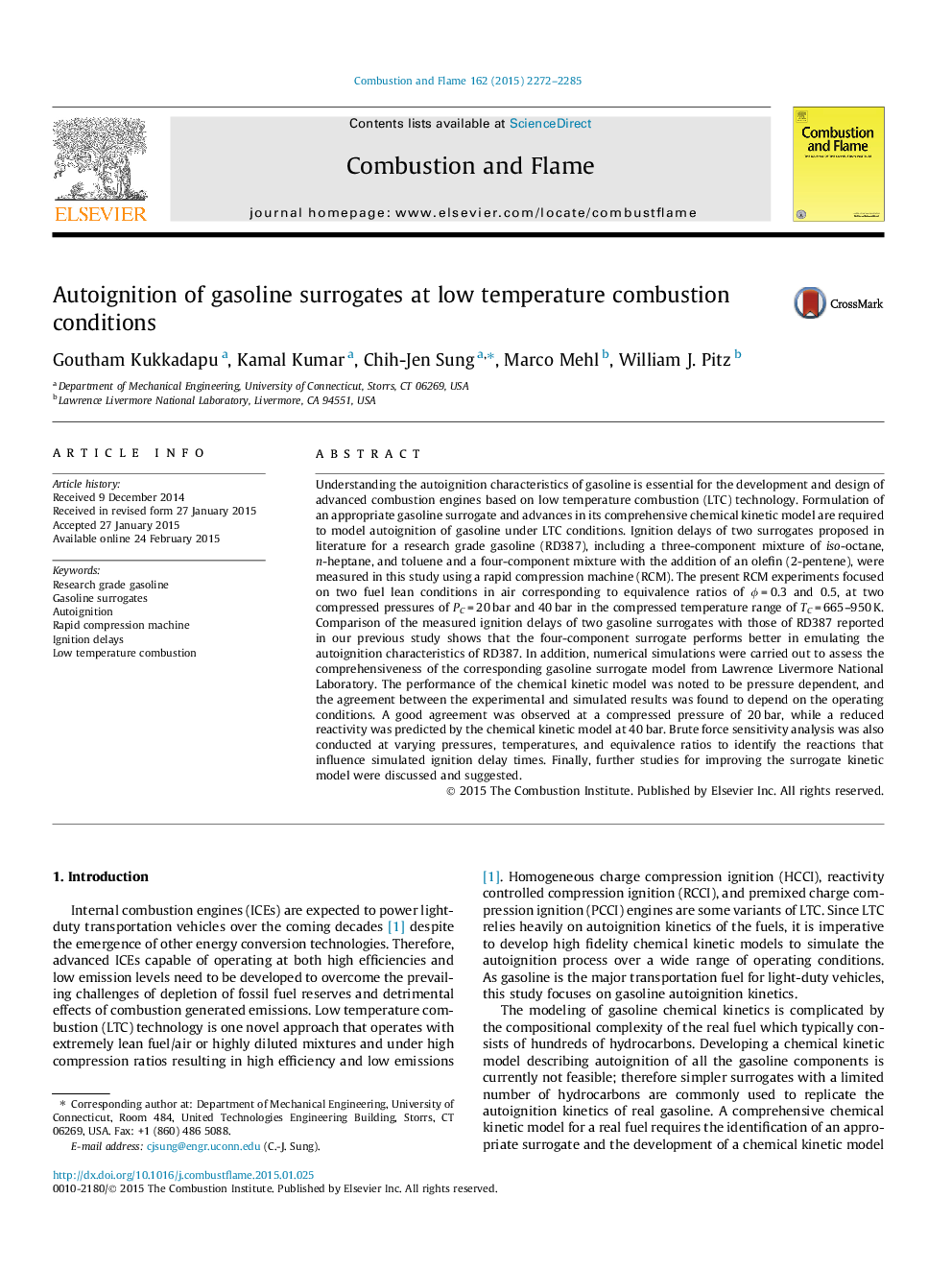| Article ID | Journal | Published Year | Pages | File Type |
|---|---|---|---|---|
| 10264324 | Combustion and Flame | 2015 | 14 Pages |
Abstract
Understanding the autoignition characteristics of gasoline is essential for the development and design of advanced combustion engines based on low temperature combustion (LTC) technology. Formulation of an appropriate gasoline surrogate and advances in its comprehensive chemical kinetic model are required to model autoignition of gasoline under LTC conditions. Ignition delays of two surrogates proposed in literature for a research grade gasoline (RD387), including a three-component mixture of iso-octane, n-heptane, and toluene and a four-component mixture with the addition of an olefin (2-pentene), were measured in this study using a rapid compression machine (RCM). The present RCM experiments focused on two fuel lean conditions in air corresponding to equivalence ratios of ÏÂ =Â 0.3 and 0.5, at two compressed pressures of PCÂ =Â 20Â bar and 40Â bar in the compressed temperature range of TCÂ =Â 665-950Â K. Comparison of the measured ignition delays of two gasoline surrogates with those of RD387 reported in our previous study shows that the four-component surrogate performs better in emulating the autoignition characteristics of RD387. In addition, numerical simulations were carried out to assess the comprehensiveness of the corresponding gasoline surrogate model from Lawrence Livermore National Laboratory. The performance of the chemical kinetic model was noted to be pressure dependent, and the agreement between the experimental and simulated results was found to depend on the operating conditions. A good agreement was observed at a compressed pressure of 20Â bar, while a reduced reactivity was predicted by the chemical kinetic model at 40Â bar. Brute force sensitivity analysis was also conducted at varying pressures, temperatures, and equivalence ratios to identify the reactions that influence simulated ignition delay times. Finally, further studies for improving the surrogate kinetic model were discussed and suggested.
Keywords
Related Topics
Physical Sciences and Engineering
Chemical Engineering
Chemical Engineering (General)
Authors
Goutham Kukkadapu, Kamal Kumar, Chih-Jen Sung, Marco Mehl, William J. Pitz,
